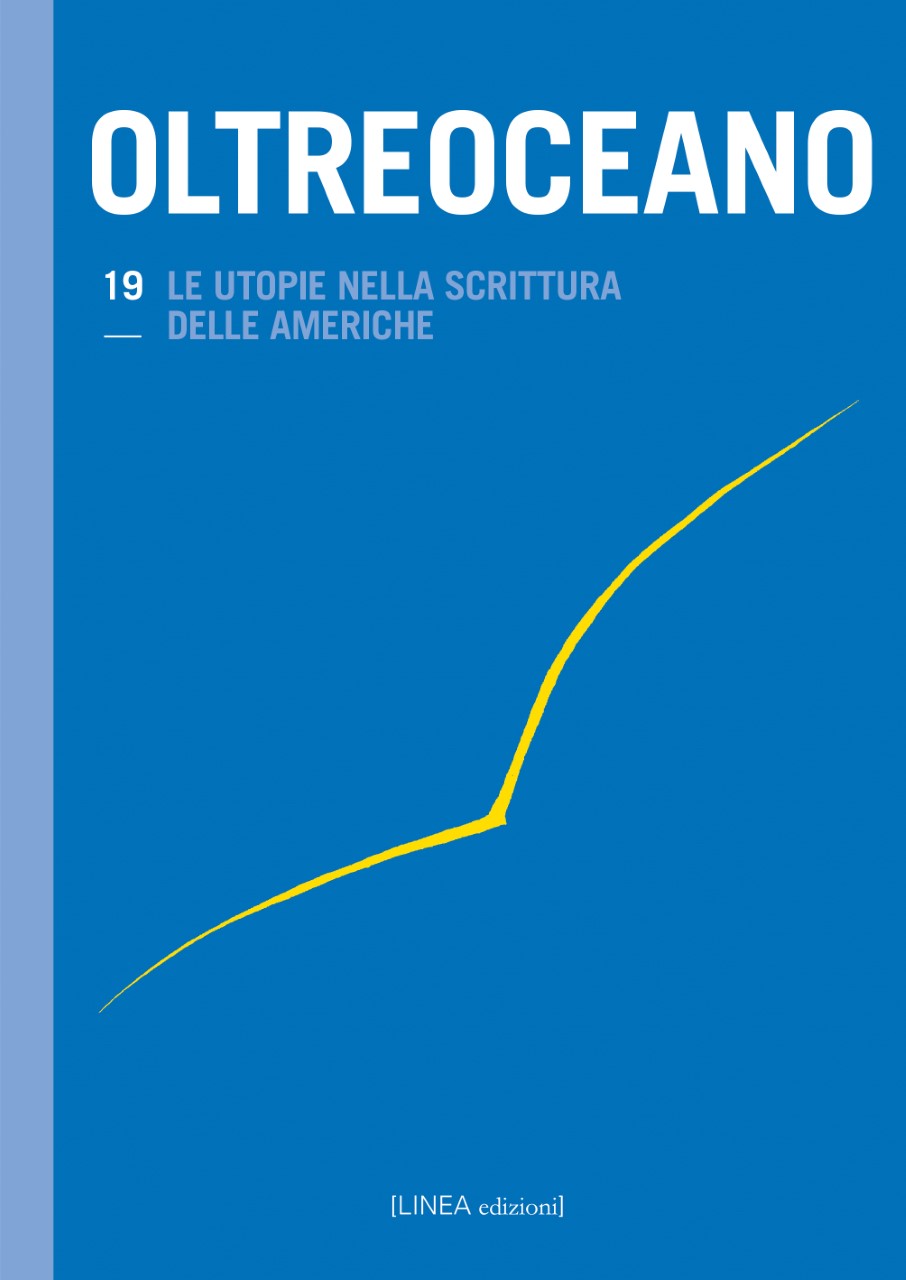Utopie come costruzione di mondi possibili
Keywords:
utopie, futuro, mondi possibiliAbstract
La semantica dei mondi possibili fa ricorso all’utopia per inventare e raccontare l’inesistente, offrendo una visione alternativa della realtà. Universi d’invenzione molteplici affiorano dalla varietà delle opere considerate che, nel basarsi su diversi modelli di finzione, affondano lo sguardo nelle sfaccettature tecniche, ontologiche ed epistemiche.
Utopias as the Construction of Possible Worlds
The semantics of possible worlds makes use of utopia to invent and tell the non-existent and thereby offers us an alternative vision of reality. Multiple universes of invention emerge from the variety of works under scrutiny which, being based on different models of fiction, turn their gaze into technical, ontological and epistemic facets.
Downloads
References
Augé, M. (2004): Rovine e macerie. Il senso del tempo. Torino: Bollati Boringhieri.
Bachtin, M. (2001): Estetica e romanzo. Torino: Einaudi.
Baczko, B. (1978): L’utopia. Trad. di M. Botto & D. Gibelli. Torino: Einaudi.
Barchiesi, M. A. (2017): Narraciones a contrapelo. In G. Fiordaliso, A. Ghezzani & P. Taravacci (Eds.), Le forme del narrare: nel tempo e tra i generi, II (pp. 41-55). Trento: Università degli Studi di Trento.
Bloch, E. (1994): Il principio speranza, I-III. R. Bodei (Ed.). Trad. di E. de Angelis (vol. I e III) e T. Cavallo (vol. II). Milano: Garzanti.
Borges, J. L. (1984): Tutte le opere, I-II. D. Porzio (Ed.). Milano: Mondadori.
Carpentier, A. (1953): Los pasos perdidos. Madrid: Alianza.
Cortázar, J. (2004): Cuentos completos, I. Madrid: Alfaguara.
Decouflé, A.C. (1975): L’an 2000: Une anti-histoire de la fin du Monde. Paris: Gallimard & Julliard.
Dellarciprete, R. (2014): Del realismo utópico de Julio Dittrich y Pierre Quiroule al historicismo contra-utópico de Eduardo Holmberg. El hilo de la fabula, Revista anual del Centro de Estudios Comparados, 13, pp. 51-56. Recuperato da https://doi.org/10.14409/hf.v1i13
Dewey, J. (2007): L’arte come esperienza, 1934. G. Matteucci (Ed.). Palermo: Aesthetica.
Doležel, L. (1999): Heterocosmica. Ficcion e mondi possibili. Milano: Bompiani.
Foucault, M. (1994): Eterotopia: luoghi e non luoghi metropoliani. Milano: Mimesis.
Giddens, A. (1981): A Contemporary Critique of Historical Materialism. Berkeley & Los Angeles: University of California Press.
Hinkelammert, F. (19902): Crítica a la razón utópica, 1984. San José: Costa Rica, DEI.
Huyssen, A. (2002): Recuerdos de utopía. En A. Huyssen, En busca del futuro perdido. Cultura y memoria en tiempos de la globalización (pp. 247-271). Buenos Aires: FCE.
Iffland, J. (1994): Ensayo sobre la poesía revolucionaria de Centroamérica. San José: EDUCA.
Liano, D. (2005): El fin de la utopía genera monstruos: la narrativa guatemalteca del siglo XX. En K. Kohut & W. Mackenbach (Eds.), Literaturas centroamericanas hoy. Desde la dolorosa cintura de América (pp. 119-128). Frankfurt am Main / Madrid: Vervuert / Iberoamericana.
Lotman, J. M. (1985): La semiosfera. L’asimmetria e il dialogo nelle strutture pensanti. Venezia: Marsilio.
Magri, C. (1999): Utopia e disincanto. Storie speranze illusioni del moderno. Milano: Garzanti.
Pavel, T. G. (1992): Mondi d’invenzione. Realtà e immaginario narrativo. A. Carosso (Ed.). Torino: Piccola Biblioteca Einaudi.
Popper, K. R. (1989): Alla ricerca di un mondo migliore. Roma: Armando.
Sartre, J.-P. (2009): Che cos’è la letteratura? D. Tarizzo (Trad.). Milano: Il Saggiatore.
Zúñiga Cáceres, B. (2018, 16/2/): Honduras: La repulsión de un pueblo a las políticas de saqueo, muerte y a la violencia del Estado. Entrevista. Colombia Informa. Recuperato da http://www.colombiainforma.info/honduras-la-repulsion-de-un-pueblo-a-las-politicas-de-saqueo-muerte-y-a-la-violencia-del-estado/
Downloads
Published
How to Cite
Issue
Section
License

This work is licensed under a Creative Commons Attribution-NonCommercial-ShareAlike 4.0 International License.
The authors undertake to comply with the following conditions, which are considered accepted at the time of submission of their contributions.
The sending of a text implies that it is unpublished and not submitted to be published elsewhere.
1. If accepted, the author shall confer on the publisher the right to publish and distribute it both in paper form and in the online electronic edition. The published articles will be downloadable and made available in open access.
2. Provided that it correctly indicates that the first publication took place in the journal Oltreoceano. Rivista sulle migrazioni the author has the right to: a) reproduce the article in separate extracts or collected in a volume; b) publish the article on their personal website or teaching site provided that these sites are of a non-commercial nature; c) deposit the article in online archives of a non-commercial nature, linked to the institution they belong to or as part of projects for the non-commercial dissemination and open access of scientific works.
The use of contributions by third parties, for commercial or otherwise unauthorized purposes, is not allowed. The publisher declines all responsibility for the unauthorized use of the material published in the journal.












